state and class structures of society; they are accompanied
and partly produced through class-based revolts fromthe bottom (class-based
revolts)
Social revolution
FindSlide.org - это сайт презентаций, докладов, шаблонов в формате PowerPoint.
Email: Нажмите что бы посмотреть
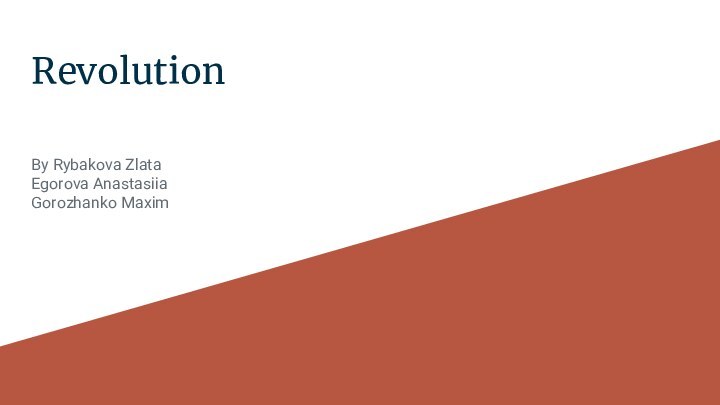
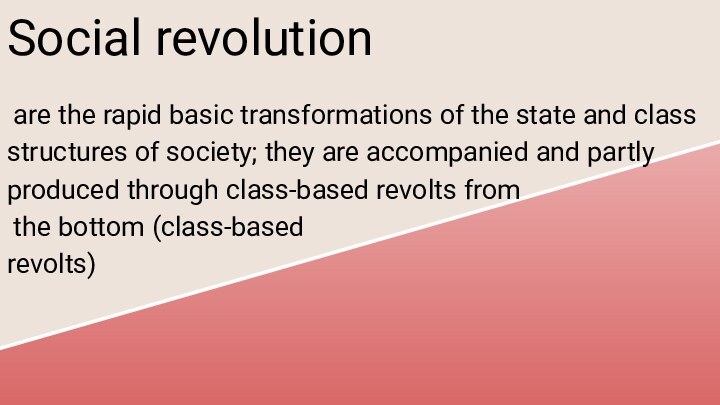
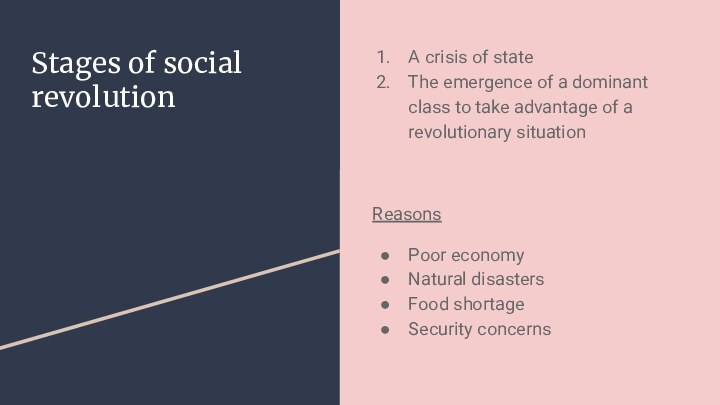
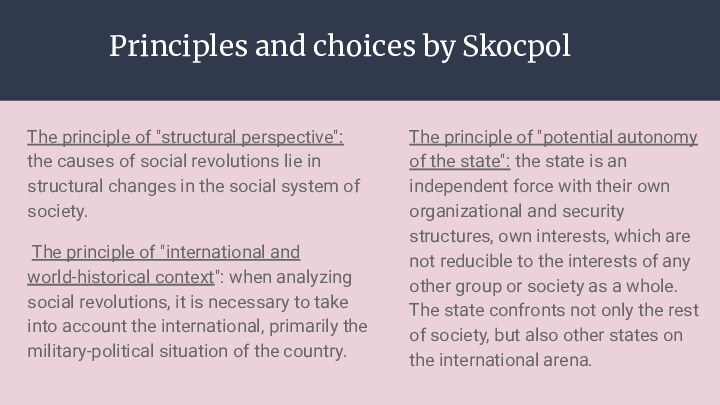
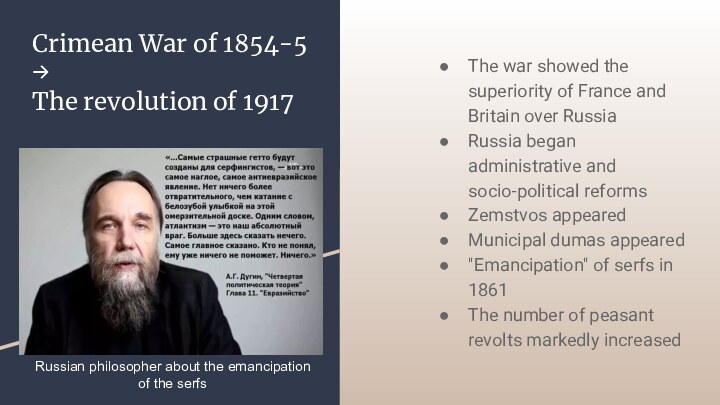
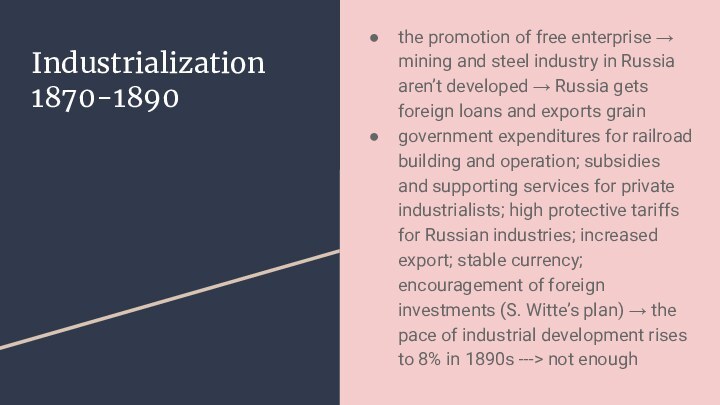
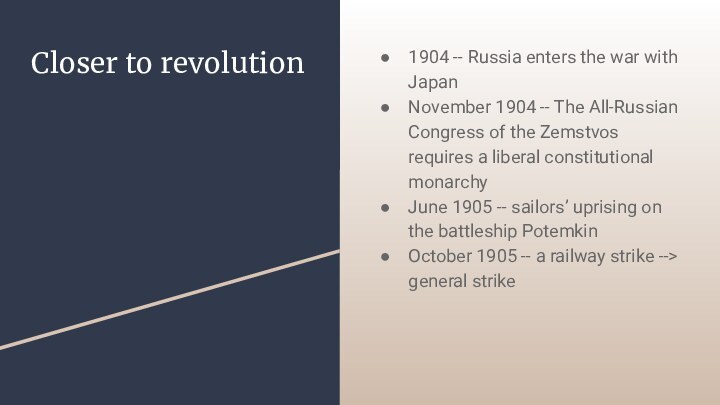
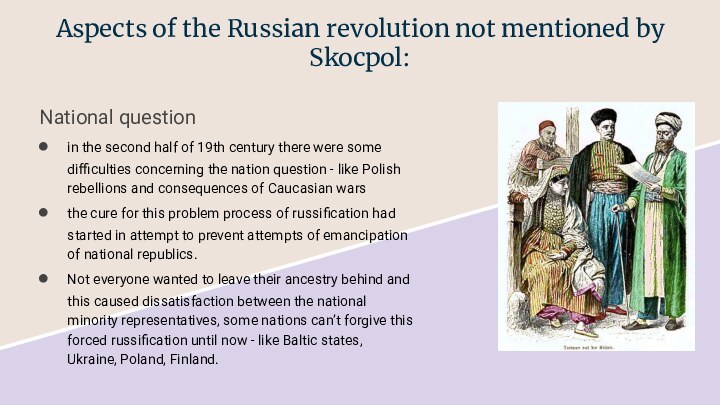
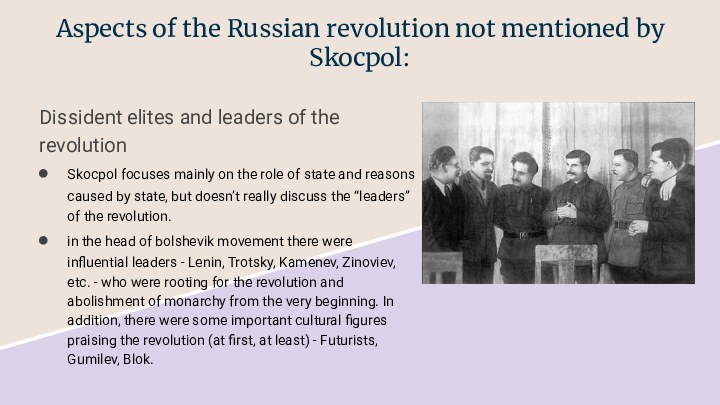
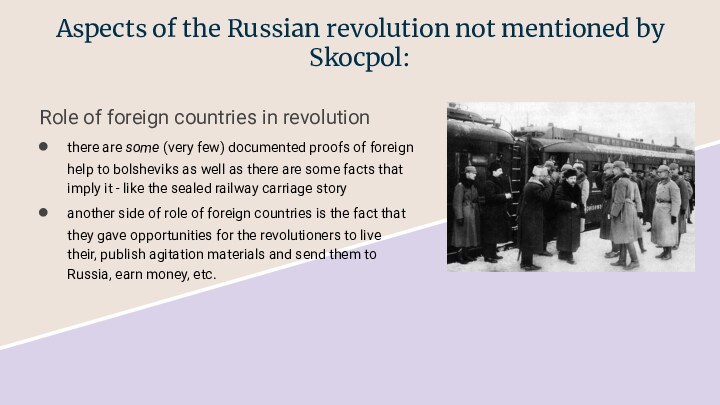
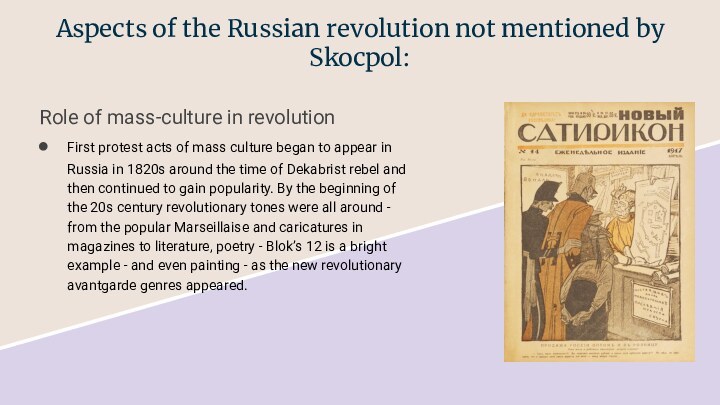
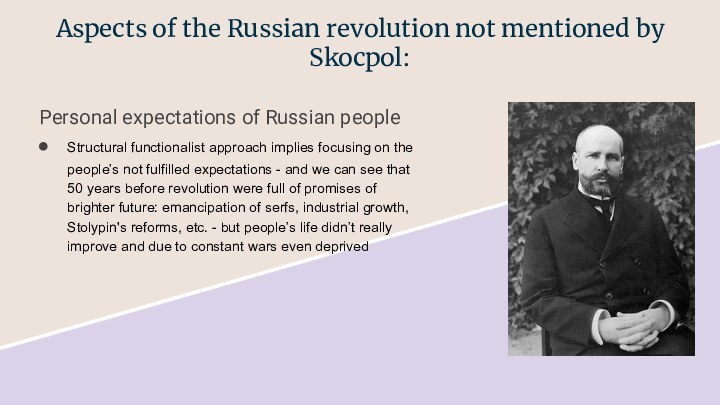

Social revolution
The principle of "potential autonomy of the state": the state is an independent force with their own organizational and security structures, own interests, which are not reducible to the interests of any other group or society as a whole. The state confronts not only the rest of society, but also other states on the international arena.
Russian philosopher about the emancipation of the serfs